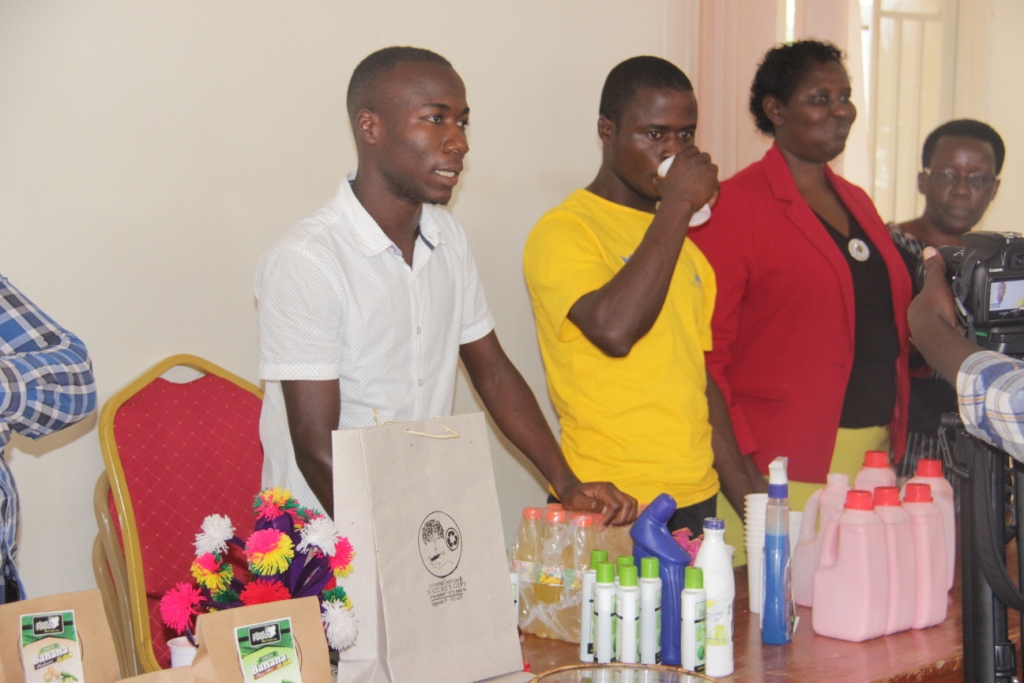Bishop Stuart University(BSU) has announced it is moving to formally register an agribusiness incubation center, with a view of developing its student agri-business ideas for sale as commercial products.
The announcement was made by Prof. Mauda Kamatenesi, the University’s Vice-Chancellor following the University’s triumph as best exhibitor at the Regional Universities’ Forum for capacity building in agriculture (RUFORUM) expo in Ghana last month.
BSU beat 121 other African universities at the University of Cape Coast Ghana, from 2nd-6th December 2019, Dr. Rebecca Kalibwani, the principal investigator-in-charge of the BSU Agribusiness Incubation Hub (AIH) attributed the University’s win to their business incubation model, which he referred to as “unique.”
Kalibwani told theCooperator that with support from development partners, the University allows students to generate their own business ideas, from which it identifies outstanding ones that it then finances to fully develop and become competitive.
One such partner is AVSI. The Dutch foundation has partnered with BSU since 2017, and has since invested close to shs.200million in supporting the University’s agri-business programs. This year, it (AVSI) has pledged to offer startup funding of shs.5million to 10 students with the best agri-business ideas.
BSU is a member of the African agribusiness incubators’ network, and Kalibwani says the University is strongly oriented towards agri-business skills development.
“The foundation(AVSI) supports our skills development component. Together, we believe that imparting practical skills to our students is one way we can contribute to solving the unemployment problem, by producing job-creators and not merely job-seekers,” he says.
One of the University’s agri-business alumnus is James Katumbi, now a thriving producer of beetroot yogurt in Mbarara town. He uses local ingredients – alviera, mulling, beetroot, hibiscus, lemon, and milk to produce his yogurt, and says he’s already attracting a special market.
“Yogurt has been there but we have added a herbal aspect to it. In Africa we don’t have any herbal yogurt so I am fighting hanger but also catering for vulnerable people like girls who bleed a lot during their menstrual periods, who need to take a lot of beetroot. Here, they take it indirectly in the yogurt,” Katumba explains.
Katumba is unequivocal about the importance of practical education programs, arguing like Kalibwani, that only they can address the challenge of unemployment. To his fellow youth, he says:
“Stop lamenting about jobs just change the mindset to venture into practical courses because at the end you will not only graduate with a degree but also with a project that can earn you money.”
Kamatenesi now believes it’s high time the University and its students cashed in on their agri-business potential:
“We are processing URSB (Uganda Registration Services Bureau) and UNBS (Uganda National Bureau of Standards) numbers to register as a company, because we’re developing our students’ ideas into bankable agri-business solutions that should be paid for,” she says.
The vice-chancellor encouraged students to particularly focus on developing ideas that provide solutions for Uganda’s industrial needs, noting that industrial innovation was the future. “We must set our sights beyond BSU to the whole country now,” she says.
At the expo in Ghana, apart from the certificate, the BSU student exhibitors were awarded $200. “We’re motivated to aim for and compete at even bigger platforms,” Kamatenesi says.
